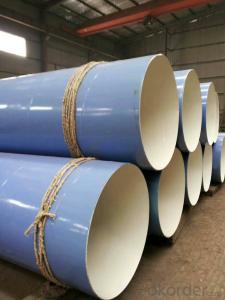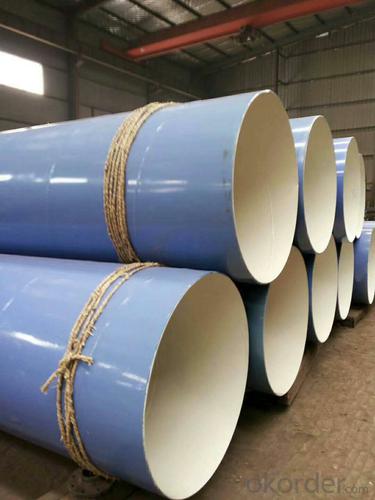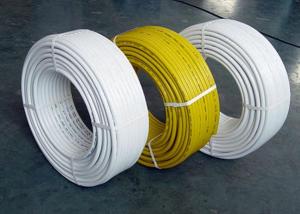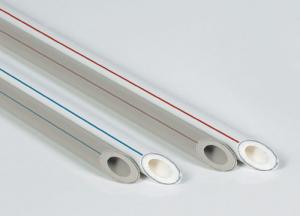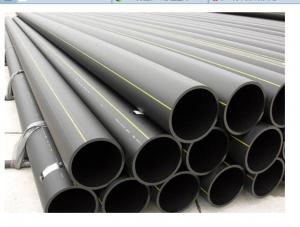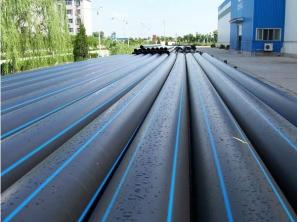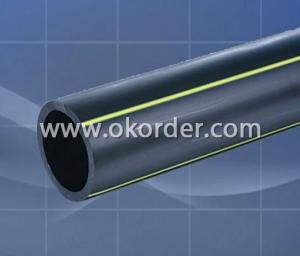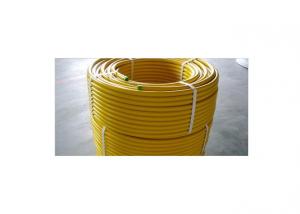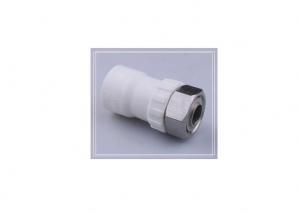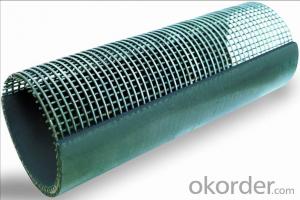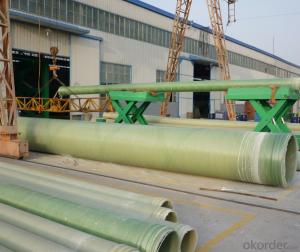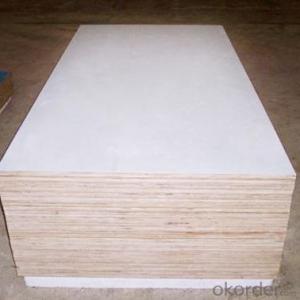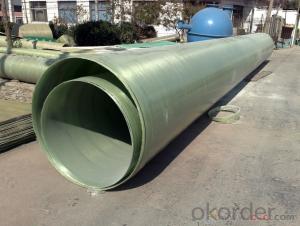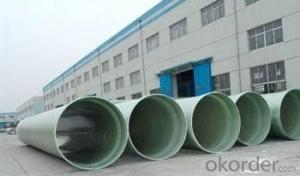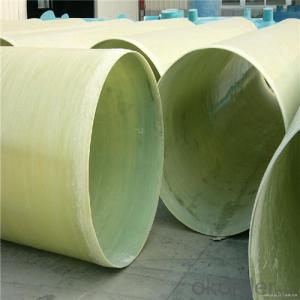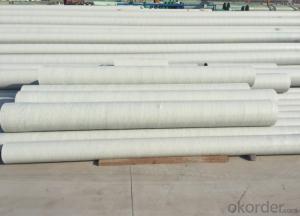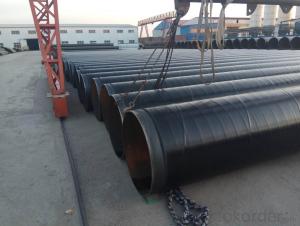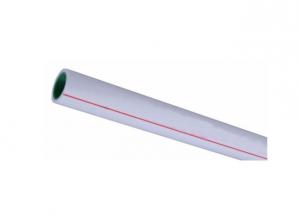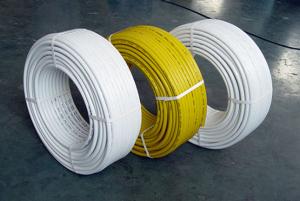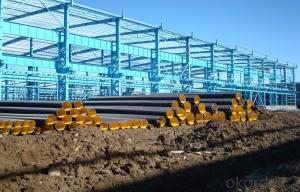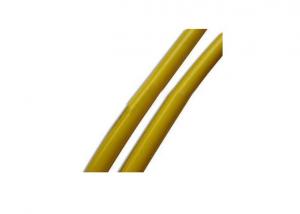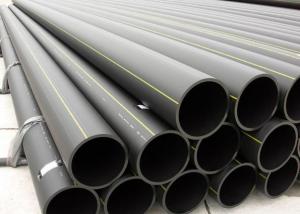Composite Epoxy Powder FBE Anticorrosive Steel Pipes
- Loading Port:
- Tianjin
- Payment Terms:
- TT OR LC
- Min Order Qty:
- 544 m²
- Supply Capability:
- 55443 m²/month
OKorder Service Pledge
OKorder Financial Service
You Might Also Like
Epoxy powder is a kind of thermosetting and non-toxic coating. After curing, it forms a cross-linked structure coating with high molecular weight. The coating is 100% solid, solvent-free and pollution-free, the powder utilization rate can reach more than 95%, the anti-corrosion coating has low water absorption rate, high mechanical strength and small friction coefficient, which can achieve the purpose of long-term use. It can also effectively prevent the destruction of plant roots and soil environmental stress. Easy connection and maintenance.
Universal colors: gray, black, blue, red, white, green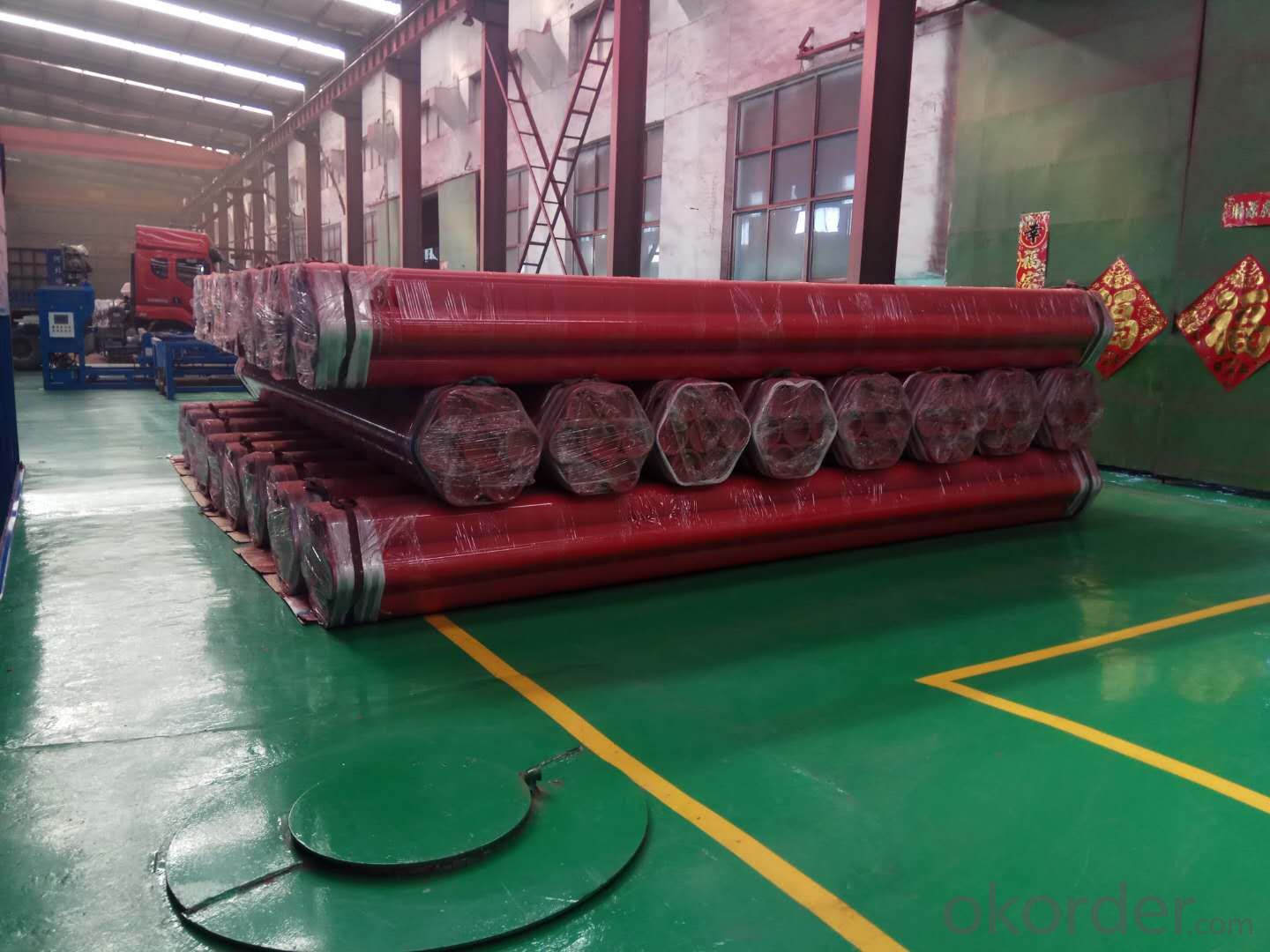
Coating thickness: PE(modified polyethylene) coating thickness is 400um - 1000um
EP(epoxy resin) coating thickness of 50um-550um is a high quality anticorrosive coating for buried steel pipe. Epoxy powder USES epoxy powder coating base polyethylene PE and adhesive winding or coating to form a three-layer PE process, which is the pipe anti-corrosion technology commonly used at home and abroad, and is also the pipe anti-corrosion technology used at home and abroad for west-east gas transmission and oil and gas, urban gas supply and water supply.
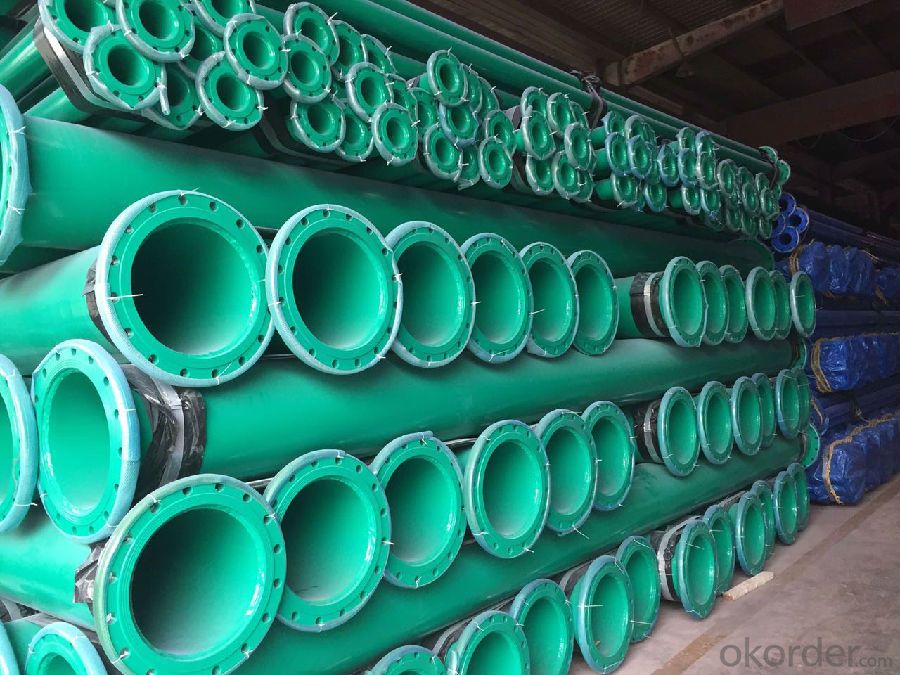
FBE anti-corrosion of steel pipe is how to effectively prevent the pipeline corrosion, passes through in the city gas pipeline buried FBE anti-corrosion of steel pipe conveyor can enter the homes of residents, however, the underground soil electrolytic weightlessness, PH value, amount of chloride ions, electrons, moisture, mobile friction, etc., are all cause corrosion to underground pipeline. The corrosion rate of the underground Cl- ion concentration on the material is the average corrosion rate of the underground material and the local corrosion expansion rate. When the water contains CO2 and so2-4, or the concentration of H is high, the water is corrosive. The water containing corrosive CO2 can dissolve calcium in concrete and quickly corrode the pipe. In this respect, the gas transmission pipeline using FBE anti-corrosion steel tube can use its efficient anti-corrosion performance to prevent the corrosion of CO2 and negative ions on the pipeline. The main components of FBE anti-corrosion steel pipe are steel pipe and anti-corrosion layer, but the production cost is much more than that
- Q: Are composite pipes resistant to chemical degradation?
- Yes, composite pipes are generally resistant to chemical degradation. The combination of materials used in composite pipes such as fiberglass and epoxy resins provide excellent resistance to a wide range of chemicals, making them a reliable choice for applications where chemical resistance is important.
- Q: Can composite pipes be used for underground applications?
- Yes, composite pipes can be used for underground applications. Composite pipes are made of materials such as fiberglass or carbon fiber, which are highly resistant to corrosion and have high strength-to-weight ratios. These qualities make them suitable for various underground applications, including water and sewage systems, oil and gas pipelines, and underground cable conduits. Composite pipes are also known for their durability and longevity, making them an excellent choice for underground use.
- Q: How do composite pipes handle water hammer in firefighting systems?
- Composite pipes are designed to handle water hammer in firefighting systems by effectively absorbing and dissipating the pressure surge that occurs when the flow of water is suddenly stopped or changed. The composite materials used in these pipes have high strength and flexibility, allowing them to absorb and reduce the impact of water hammer, minimizing the risk of pipe damage and ensuring reliable performance in firefighting operations.
- Q: Are composite pipes suitable for extreme temperature conditions?
- Composite pipes can be suitable for extreme temperature conditions depending on the specific materials used in their construction. Some composite pipes are designed to withstand high temperatures, while others are better suited for low temperatures. It is important to consider the intended application and consult with experts to ensure the appropriate composite pipe is selected for extreme temperature conditions.
- Q: Can composite pipes be used for chemical waste disposal?
- Yes, composite pipes can be used for chemical waste disposal. Composite pipes are made from materials such as fiberglass, carbon fiber, or other reinforced polymers, which offer excellent resistance to corrosion and chemical attack. These pipes are lightweight, durable, and can handle a wide range of chemicals, making them suitable for safely transporting and disposing of chemical waste.
- Q: Can composite pipes be used for swimming pool piping?
- Yes, composite pipes can be used for swimming pool piping. Composite pipes are known for their durability, corrosion resistance, and ability to withstand harsh chemicals, making them suitable for swimming pool applications. Additionally, composite pipes offer flexibility, ease of installation, and low maintenance, making them a reliable choice for pool plumbing systems.
- Q: Are composite pipes suitable for use in residential plumbing?
- Yes, composite pipes are suitable for use in residential plumbing. They are lightweight, corrosion-resistant, and have a longer lifespan compared to traditional materials like metal or PVC. Composite pipes also offer better insulation, reducing heat loss and noise transmission. Additionally, they are easy to install, maintain, and have a lower risk of leaks.
- Q: What are the types of aluminum alloy lined plastic composite pipes?
- According to the structure is divided into ordinary aluminum alloy lining plastic composite pipe and curved elastic vector aluminum alloy lining plastic composite pipe system, the two functions and materials can not be mentioned in the same breath.
- Q: What are the metal and composite pipes?
- In nature, most metals exist in a compound state, and a few metals, such as gold, platinum, silver and bismuth, exist in free form. Most of the metal minerals are oxides and sulfides. Other forms of existence are chlorides, sulfates, carbonates, and silicates. The bonds between the metals are metal keys, so they can be renewed at any change of position, which is why the metal is well stretched. A metallic element usually only shows a positive valence in a compound. It's also a musical style, or it's called heavy metal. There are different kinds of rock music, metal classification.
- Q: Can composite pipes be used in marine environments?
- Yes, composite pipes can be used in marine environments. Composite materials are known for their excellent corrosion resistance, which makes them suitable for marine applications. Additionally, composite pipes are lightweight, durable, and have high strength-to-weight ratio, making them ideal for use in marine environments where weight and durability are crucial factors.
Send your message to us
Composite Epoxy Powder FBE Anticorrosive Steel Pipes
- Loading Port:
- Tianjin
- Payment Terms:
- TT OR LC
- Min Order Qty:
- 544 m²
- Supply Capability:
- 55443 m²/month
OKorder Service Pledge
OKorder Financial Service
Similar products
Hot products
Hot Searches
Related keywords
